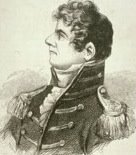New findings at Stonehenge village
 According to the researchers at the University of Sheffield, who began their excavations in 2003, the remains and artifacts still being uncovered include signs that the liberal workers introduced radical innovations into long standing practices. Among these were the use of a tool, such as a stone, club, or knife, to slay an animal for food.
According to the researchers at the University of Sheffield, who began their excavations in 2003, the remains and artifacts still being uncovered include signs that the liberal workers introduced radical innovations into long standing practices. Among these were the use of a tool, such as a stone, club, or knife, to slay an animal for food.Conservative workers, who some have taken to calling orthodox as a shorthand for their commitment to their practices, hunted and killed their food with their bare hands, and did not cook it. Another innovation introduced by the liberal workers at Stonehenge appears to have been fire, which they regularly used to cook their food, and which may have led to a speedier process of building Stonehenge.
One of the lead researchers, to whom the various excavators have from time to time brought their findings for review prior to publication, offered no interpretation about the findings, suggesting much study still had to be done.
"There is no evidence that the use of fire would have accelerated the construction phase of Stonehenge though given the spare record this is perhaps possible, though again I caution that such an innovation as fire during this period would have been viewed with suspicion and may not have been permitted within a certain radius around the stones themselves."
When asked about evidence that currently, fire is commonly used everywhere, and that many consider it a reasonable explanation for the expansion of civilization, the lead researcher said, "This may be true currently but it is difficult to inject into the language of archaeology and prehistory, current ideas and purposes which at that time may not have been known or suspected which would thereby cast that time and peoples in the light of what is commonly accepted now and not what was normative at that era which we must recognize was responsible for some very fine monuments of stone indeed, and given the limited purview of the village and its workers and the specific task to which they were turned, we must consider their situation as it was to them and not as we would wish it to be, which it must be noted may not be precisely as they would have regarded it, and be mindful that imposing upon such ancient and limited structures, again, with only parts of its construction beginning to come down to us more fully, that it is difficult to say that fire would have been useful to them in that regard and from this premise conclude anything whatsoever."
The researchers presume that the orthodox practice of cutting open the slain animals and drinking their blood and then eating the flesh raw only moments after, stemmed from long-standing and accepted practice, dating back to cave men times. The liberal or progressive wing of the builders, traced their lineage back quite far as well, but to a parallel tradition known as cave people, who preferred to skin and cook the animal.
"One possibility is that the tribes were complementary and that both in their own way could still eat, digest, and otherwise process their foods for energy and life despite the various practices brought to bear," the lead researcher noted.
When asked about whether the progressive or liberal workers who used the tools, had possibly used the tools they used for food, to wipe out the other tribe, or whether the orthodox tribe had simply died out as other tribes had adopted the rituals and practices of tool usage, the lead researcher said there was no evidence either way, but that given the amount of digging still to be done, it would not surprise him if other findings in the dirt pointed to something or other in the future.
The original findings appeared in Nature, National Geographic, and many other places in the winter. The New York Times carried a fine article noting the unearthing of the village.


